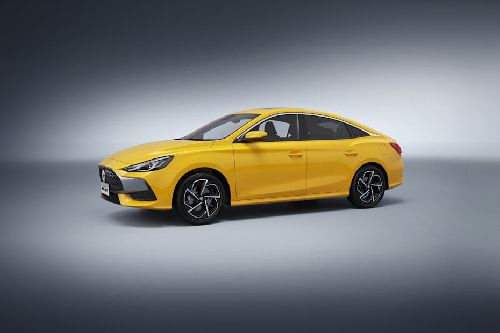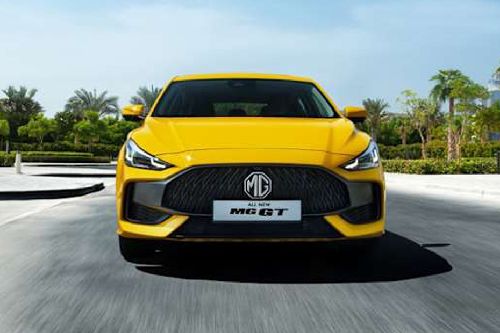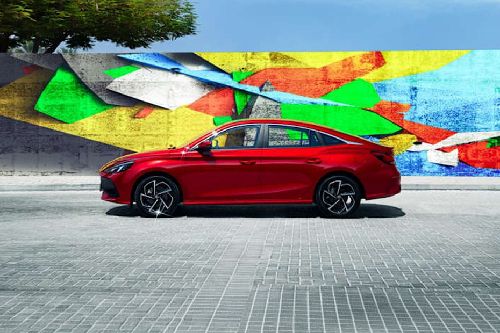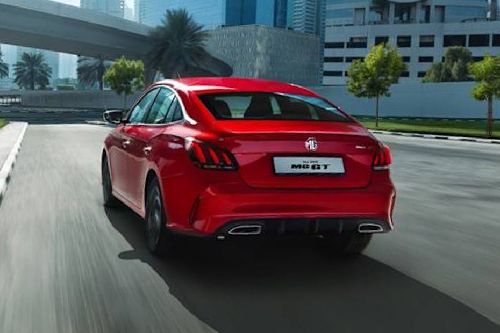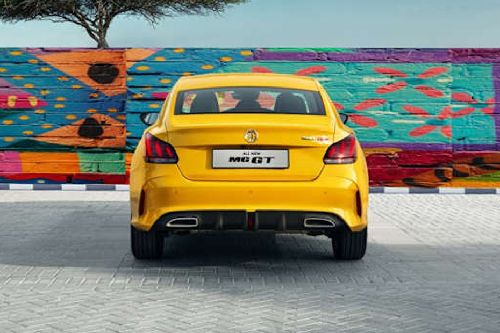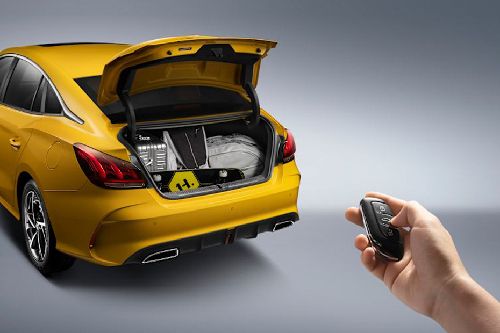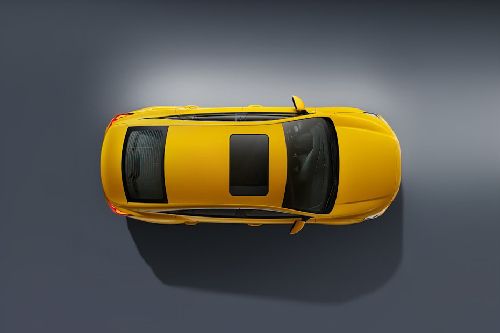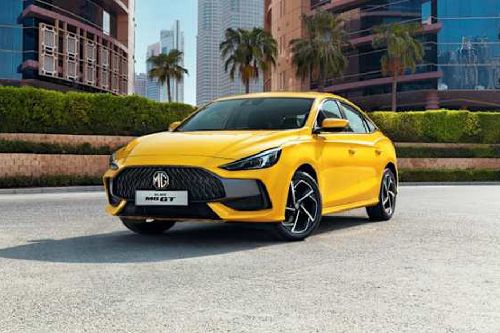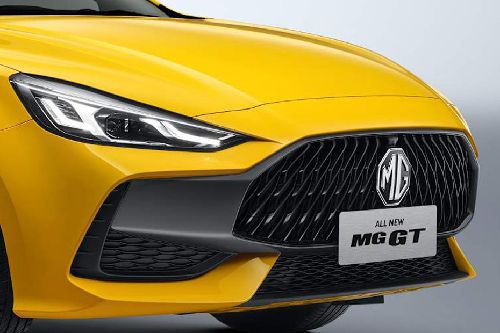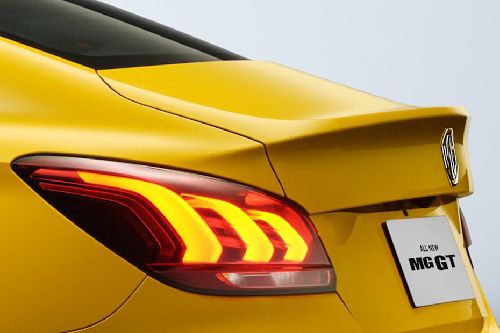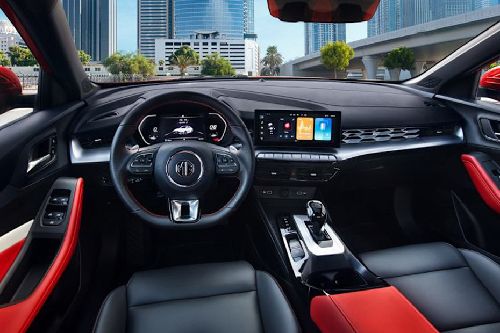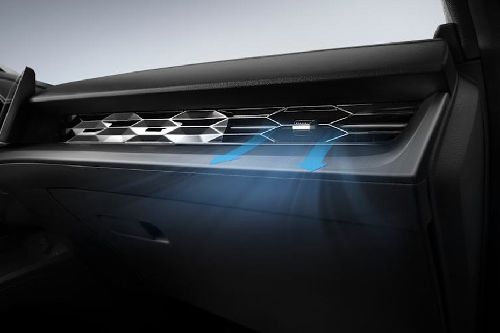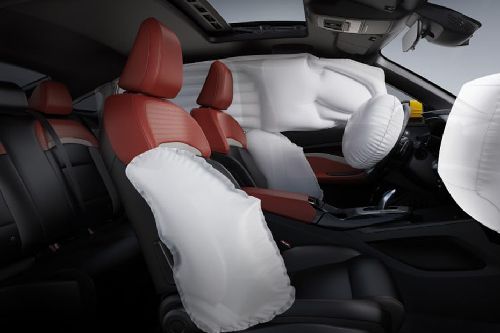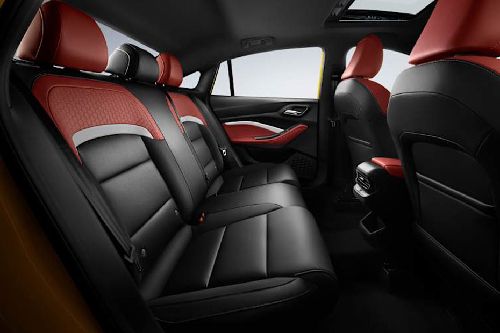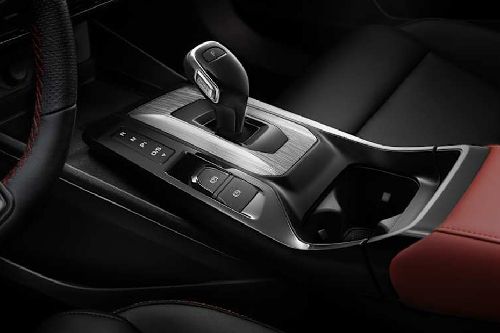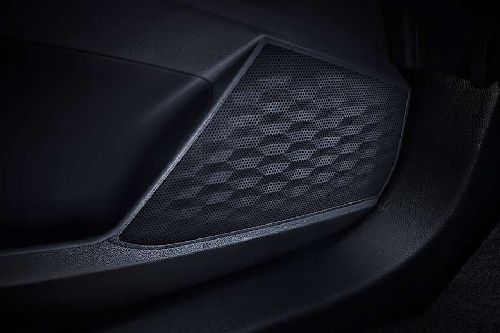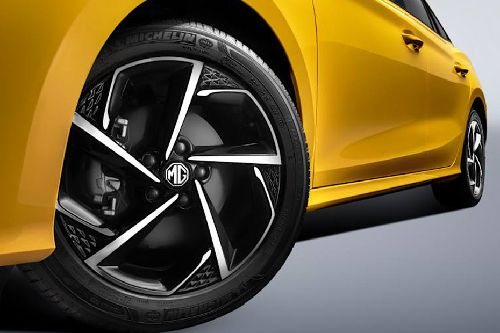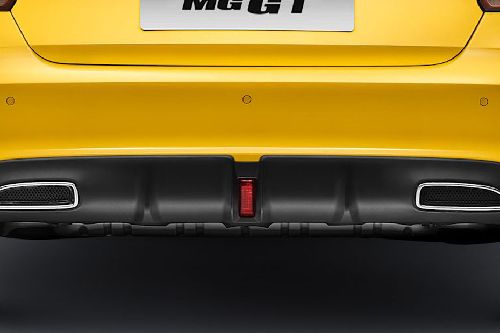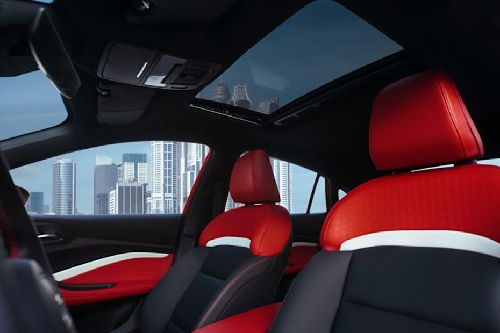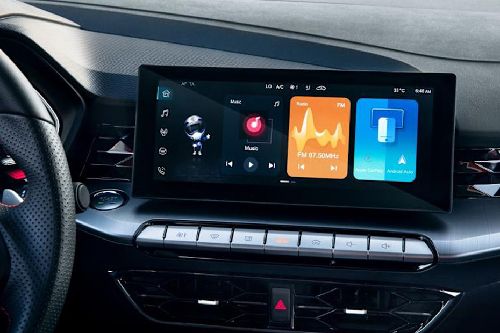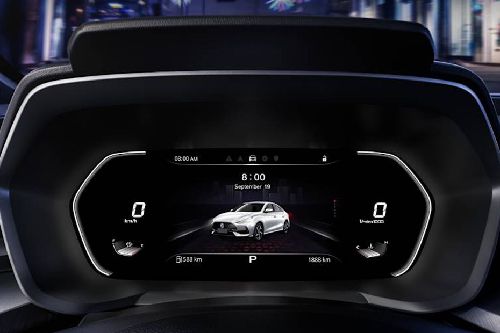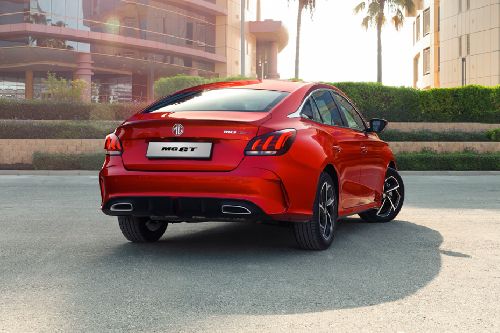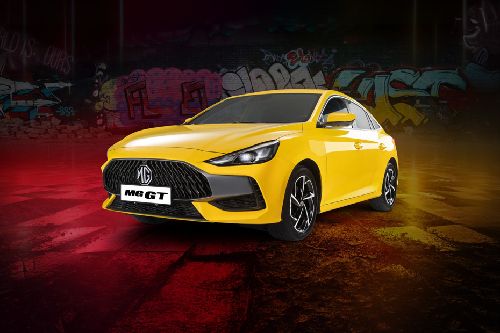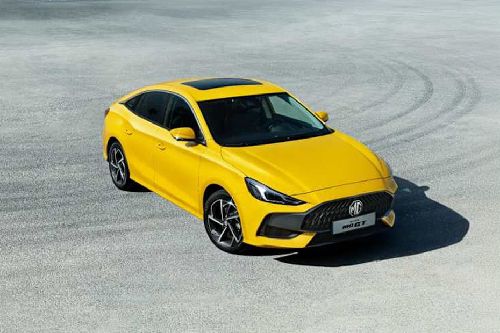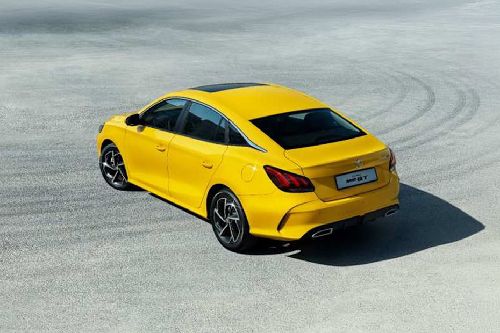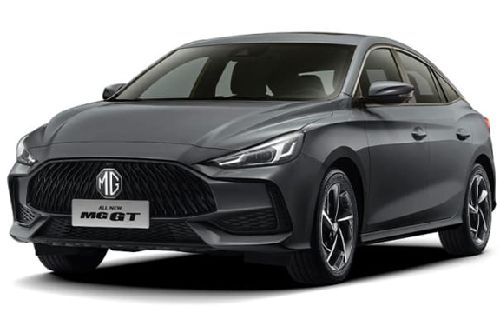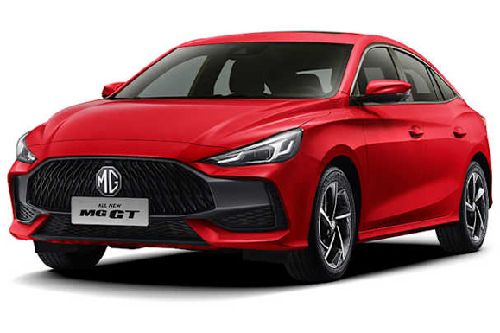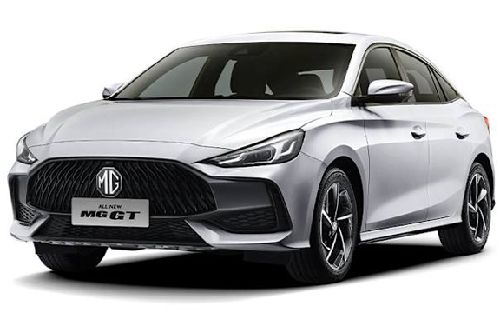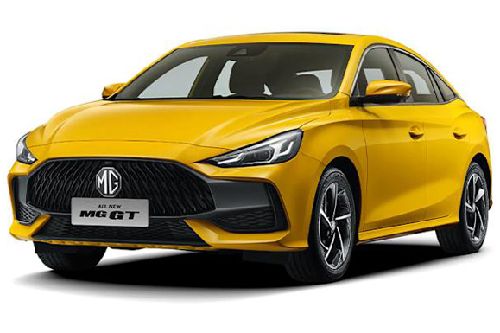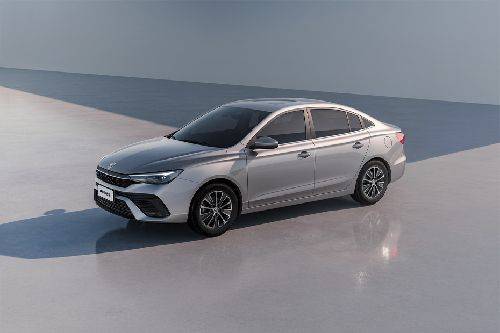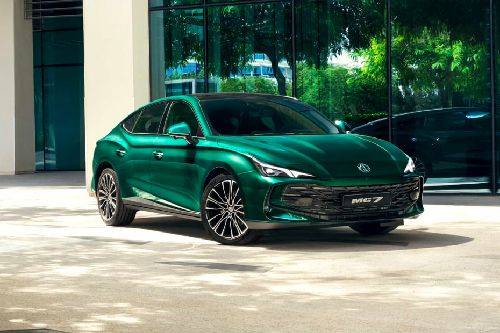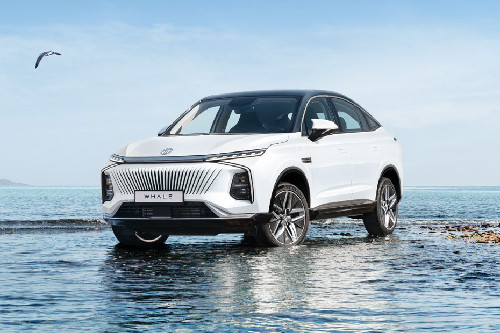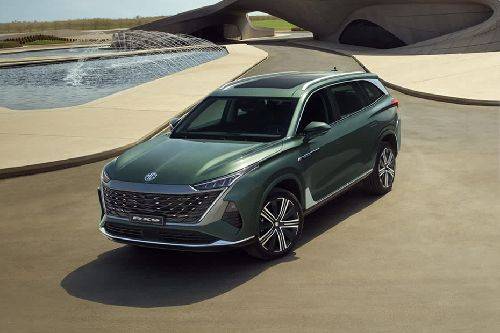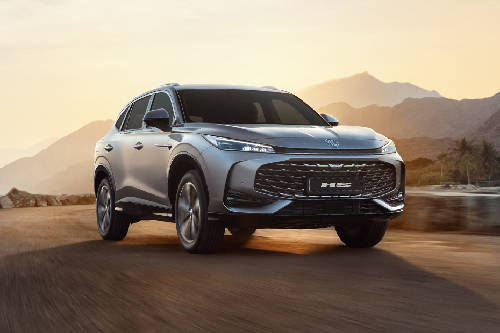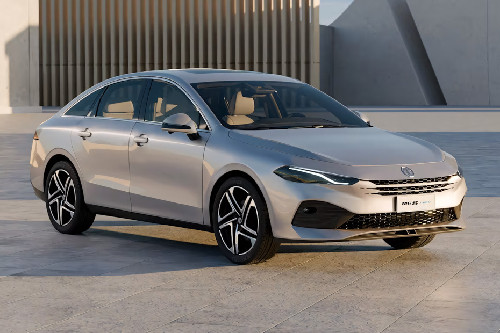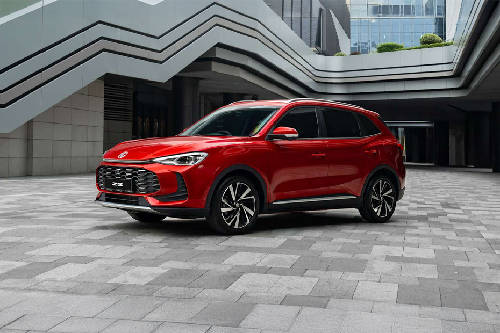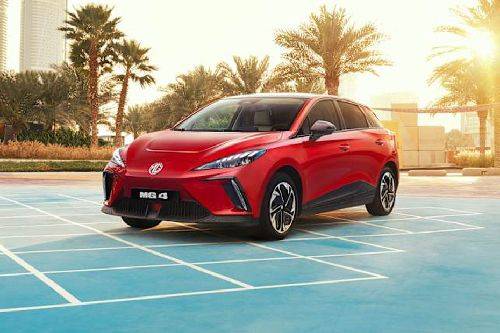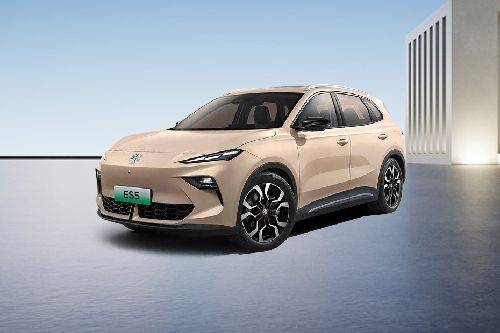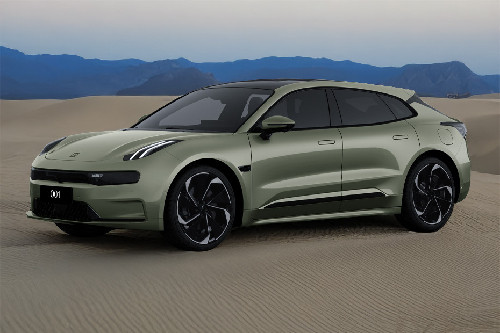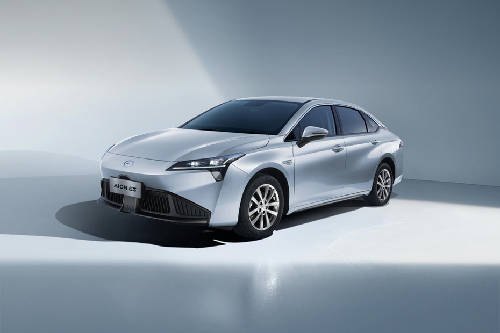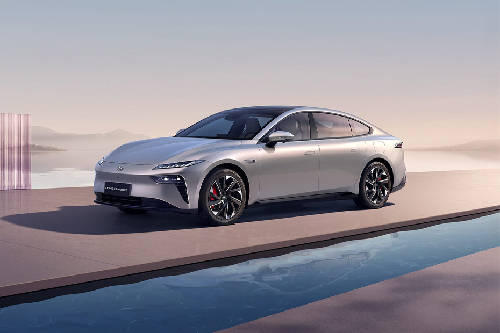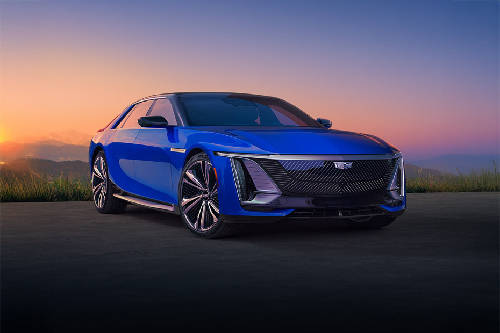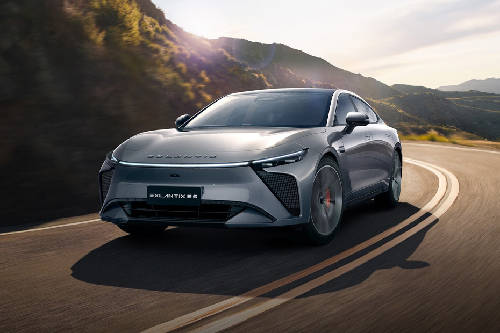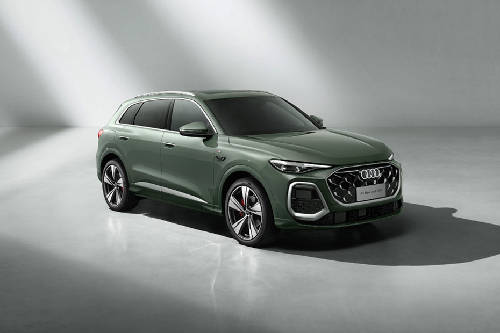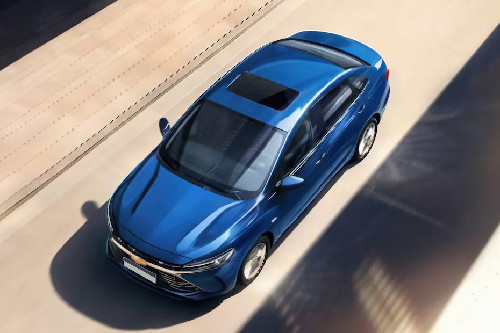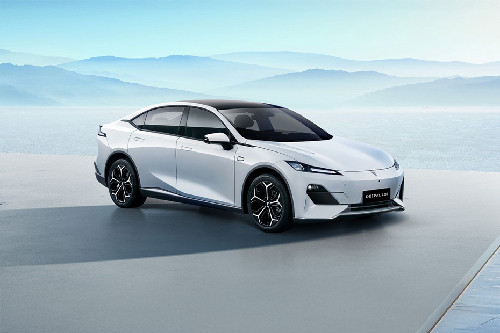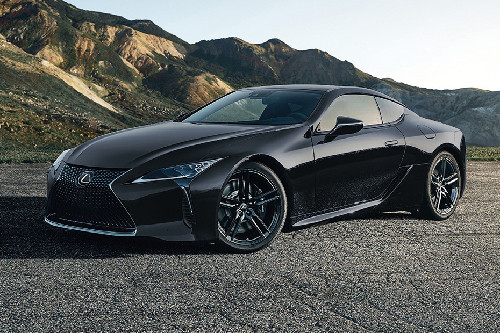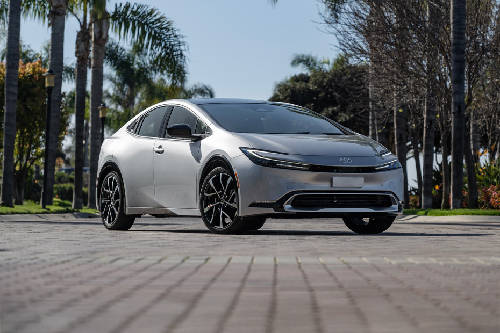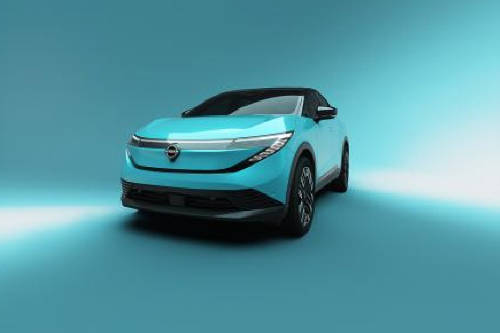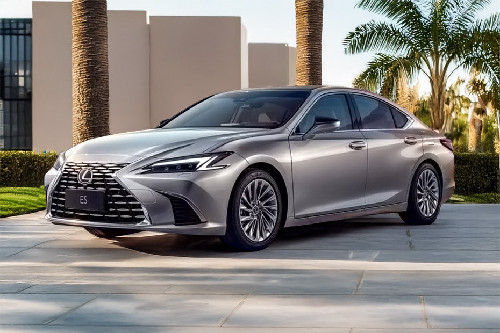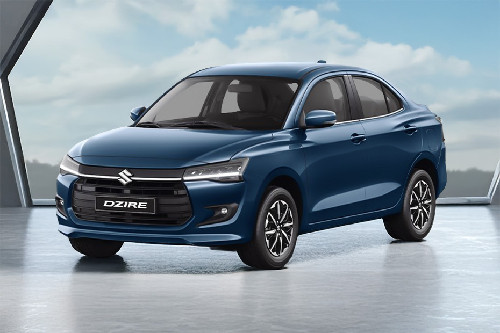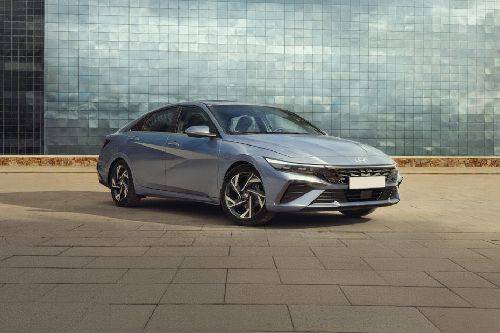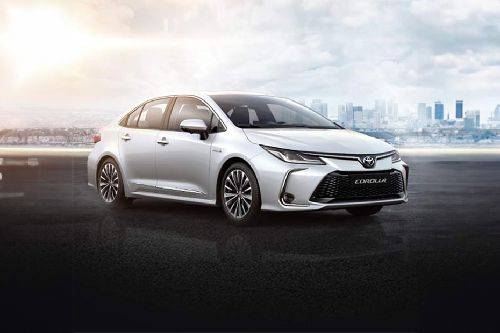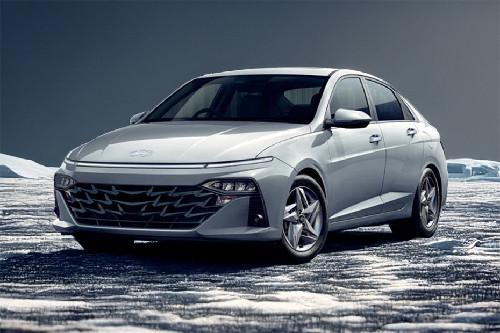MG GT 2024 Comparison: Toyota Yaris, Honda City, and Hyundai Accent

The first-generation MG GT lasted between 2014 to 2019, but it never saw the light of day in the GCC. This was primarily because its respective position in the brand’s line-up was already occupied by the MG 5. In order to entice the youth of Saudi Arabia, a relatively basic model like the MG 5 wasn’t going to pass muster.
KEY TAKEAWAYS
Which are the main competitors of the MG GT?
The Honda City, Hyundai Accent, and Toyota Yaris are the key competitors of the MG GT.What is the price of the Honda City in KSA?
The new Honda City costs between SAR 75,785 and 91,885 in KSA.What is the price of the Hyundai Accent in KSA?
The new Hyundai Accent is priced between SAR 76,730 and 97,085 in KSA.What is the price of the Toyota Yaris in KSA?
The price of the new Toyota Yaris in KSA is between SAR 63,135 and SAR 75,670.Is the Toyota Yaris fuel efficient?
The Toyota Yaris is very fuel-efficient and claims a mileage of 22.4 kmpl or 4.4 L/100 km. Photo from MG
Photo from MG
To achieve that feat, MG Motor needed a car that spoke the same language. This is where the MG GT 2024 comes into the picture. Built on the GM-PATAC K platform, the primary arsenal of the MG GT is its sporty and peppy design. Moreover, not being an entry-level car makes the GT a far more satisfying purchase.
So, what makes the styling of the MG GT so desirable? The chic but confident stance of the MG GT stems from its svelte fastback design. This is fortified by the sharp look of the headlights, an aggressive main grille, two-tone ‘Tomahawk’ alloys, and debonair LED taillights. The swooping lines and smartly-integrated bulges work just as well.
 Photo from MG
Photo from MG
The interior of the MG GT imparts a decent sense of sportiness using contrasting tones and striking design features. Where the driver-focused dashboard heightens the driving experience, the 401-liter boot is not the most spacious-in-class. Among the noteworthy features, there are automatic LED headlights, automatic climate control, an air purifier, push-button start, and Android Auto & Apple CarPlay.
The MG GT also gets paddle shifters, a 12.3-inch digital driver’s display, a 10.1-inch touch-infotainment system, and an electric sunroof. Its safety tech involves an electronic stability program, 360-degree cameras, forward-collision warning, lane-departure warning, up to six airbags, and TPMS. The engine options include 1.5-liter N/A and turbocharged four-cylinders mated to either a CVT or a DCT automatic.
 Photo from MG
Photo from MG
The N/A engine produces 118 hp and 150 Nm of torque, whilst the turbo-petrol develops 173 hp and 250 Nm. The fuel-economy figure of these engines is 16.9 kmpl (5.9 L/100 km) and 17.5 kmpl (5.7 L/100 km), respectively. The top speed of the MG GT is 215 kmph for the turbo and 185 kmph for the N/A version.
The MG GT 2024 in Saudi Arabia is sold in STD, COM, and LUX variants. These variants are priced at around SAR 63,000, SAR 75,000, and SAR 81,000, respectively. It is now time to glance at the competitors of the MG GT.
-
Toyota Yaris (SAR 63,135–75,670)
Design and interior
The Yaris is more compact than the MG GT. Not only is it 250 mm shorter overall, but its wheelbase is also down by 180 mm. However, the boot of the Yaris has a capacity of 475 liters – 74 liters more than the MG. The Yaris also adopts a coupe-esque design with a sloping roofline and arched back.
 Photo from Toyota
Photo from Toyota
The LED headlights look modern, while the split grille of the Yaris features a narrow strip up top and a much larger intake at the bottom. The boot-lip spoiler, protruding taillights, and faux rear vents make for a sporty touch. However, the Yaris only gets a maximum of 16-inch wheels. The new Yaris is a far better-looking car than its predecessor.
The cabin of the Yaris looks simpler and more user-friendly, clearly prioritizing everyday usability over visual drama. The seat cushioning and seating position are both good, while the basic controls and button layout are easy to understand. The shorter wheelbase means that rear-seat passengers will not be as comfortable as in the MG GT.
Features and equipment
 Photo From Toyota
Photo From ToyotaAvailable on the top-end YX variant of the Yaris are adaptive cruise control and lane-departure alert. It also includes a pre-collision warning with emergency brake assist. There are six airbags on the YX variant, while lower variants only get dual front airbags. All variants get vehicle stability control, anti-lock brakes, and parking sensors with a rearview camera.
The Yaris offers auto-folding ORVMs, automatic climate control, push-button start, wireless charging, and an electric parking brake with auto hold. There is a 7-inch digital driver’s display, plus a 6-speaker sound system, Apple CarPlay, and a 9-inch infotainment touchscreen. However, the Toyota Yaris does not get surround-view cameras, Android Auto, leather seats, or an electric sunroof.
Engine and performance
The Toyota Yaris is powered by a 1.3-liter naturally-aspirated four-cylinder petrol engine that produces 97 hp and 122 Nm. Based on the TNGA-B platform, the new Toyota Yaris has a CVT automatic and can reach about 175 kmph. Understandably, the Yaris is not a quick car, taking north of 11 seconds to surpass 100 kmph.
 Photo From Toyota
Photo From Toyota
While it is not as rapid as the MG GT, the Yaris boasts a claimed 22.4 kmpl (4.4 L/100 km). This makes it a far more economical option for buyers who want to keep running costs to a minimum. However, any overtaking maneuver at higher speeds would require some planning.
-
Honda City (SAR 75,785–91,885)
Design and interior
Compared to the MG GT and Toyota Yaris, the design of the Honda City follows the conventional ‘three-box’ principle. The City’s relatively traditional sedan styling is something that will appeal to a much wider audience. The base variant is the more elegant one and features a thick chrome grille, while higher variants look sportier.
 Photo From Honda
Photo From Honda
This has been executed using a different grille and wheel design for the City Sport variants. They also come with better contrasting black trim at the front, sides, and rear. The City’s looks are brought to the fore by its multi-array LED headlights, Z-shaped LED taillights, a black decklid spoiler & rear diffuser, and 16-inch two-tone wheels.
The well-designed and ergonomic interior of the Honda City is both spacious and comfortable. The integration of rear AC vents and armrest with cupholders, soft leather upholstery, and the beautifully-finished & backlit AC control knobs accentuates this nicely. The effective air-conditioning, straightforward ergonomics, and aluminum-finished footrests only add to the overall feel of this car.
 Photo from Honda
Photo from Honda
Features and equipment
The City doesn't have TPMS or 17-inch wheels but gets the Honda Lanewatch system. It uses a camera mounted on the passenger-side ORVM to reduce the driver’s blind spot. The safety features of the Honda City include six airbags, electronic stability & traction control, hill-start assist, and ISOFIX anchors. The most consequential of these comprises the Honda Sensing suite.
This includes features like adaptive cruise control, forward-collision warning with emergency braking, lane-departure warning, lane-keeping assist, and road-departure mitigation. The City also gets tilting & telescoping steering, automatic headlights, automatic climate control, paddle shifters, wireless charging, ECON drive mode, Apple CarPlay & Android Auto, an 8-speaker audio system, a 7-inch driver’s display, and an 8-inch touchscreen.
 Photo From Honda
Photo From HondaEngine and performance
Under the hood of the Honda City is a 1.5-liter N/A four-cylinder petrol engine with 119 hp and 145 Nm of torque. This sprightly i-VTEC motor allows the City to reach a top speed of 190 kmph, while its ‘7-step’ CVT gearbox results in a claimed 21.1 kmpl or 4.7 L/100 km.
-
Hyundai Accent (SAR 76,730–97,085)
Design and interior
The new Hyundai Accent’s styling is an amalgamation of the contemporary ‘coupe’ and traditional three-box design. It is in equal measure modern and sophisticated with a wedge-shaped front fascia and a chiseled rear end. The combination of the Parametric grille, full-width LED light bar, flared rear haunches, heavily-sloped rear, and elaborate LED taillights make a bold fashion statement.
 Photo from Hyundai
Photo from HyundaiThe Accent is 140 mm shorter than the MG GT, but its wheelbase is almost similar at 2,670 mm. This stretch between the front and rear wheels is apparent and bestows the sedan with an aura of stability. The long wheelbase has the benefit of giving the Accent a ‘big car’ appearance while also making the cabin roomier.
The interior of the Accent is minimalistic yet driver-centric, plus inherently well-built and elegant in its design. The digital real estate consists of two screens housed inside a single curved slab mounted on top of the dashboard. Design elements like the sleek front AC vents, two-spoke steering wheel, chunky gear lever, and well-padded leather seats blend together nicely.
Features and equipment
The most advanced safety tech of the Accent is its Hyundai SmartSense suite. It uses cameras and sensors to enable forward-collision alert with automatic braking, lane-departure warning, lane-keeping assist, blind-spot warning with emergency braking, and rear-occupant alert. There are six airbags, ISOFIX anchors, stability management, anti-lock brakes, parking sensors, and a reversing camera (but no surround-view cameras).
 Photo From Hyundai
Photo From HyundaiThe Accent’s useful features include automatic climate control with rear vents, heated & ventilated front seats, wireless charging, split-folding rear seats, and automatic boot release. There is also an electric sunroof, paddle shifters, ambient lighting, heated ORVMs, premium Bose audio, 8-inch touch-infotainment with smartphone connectivity, multi-mode instrument cluster, plus Normal/Sport/Eco drive modes.
Engine and performance
The Hyundai Accent uses an all-aluminum 1.5-liter four-cylinder engine with 113 hp and 144 Nm of torque. This N/A unit is offered with a 6-speed automatic and a CVT, or as Hyundai calls it, “Intelligent Variable Transmission”. The Accent has a top speed of around 185 kmph and claims an average of 18.9 kmpl (5.3 L/100 km).
Conclusion
The core strengths of the Hyundai Accent lie in its striking design and spacious & well-equipped cabin. It can become pricey if you want all the cool tech, and the Accent’s styling may not be for everyone. The Honda City, meanwhile, is a handsome and well-proportioned sedan with a comfortable cabin and a large 510-liter boot.
 Photo From MG
Photo From MGThe City’s excellent reputation as a no-nonsense and reliable sedan is well-founded. It is also fun to drive and comes with plenty of modern features & safety tech. Then there is the evergreen Toyota Yaris, which is not only stylish but also extremely fuel-efficient. Its boot is bigger than the MG GT, while its fuss-free interior feels more relaxed.
MG Car Models
Don't Miss
Automotive News and Reviews
- Latest
- Popular
You might also be interested in
- News
- Featured Stories
Featured Car
- Latest
- Popular
Compare & Recommended
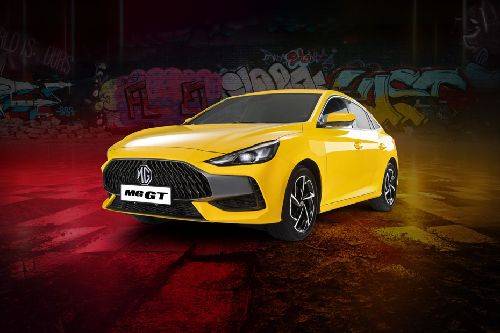
|
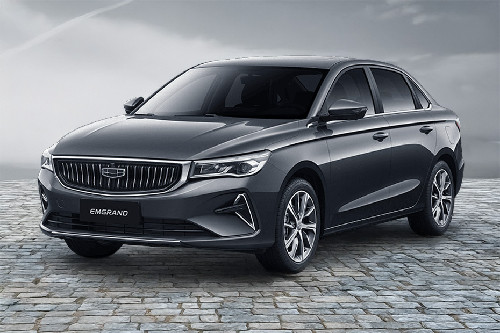
|
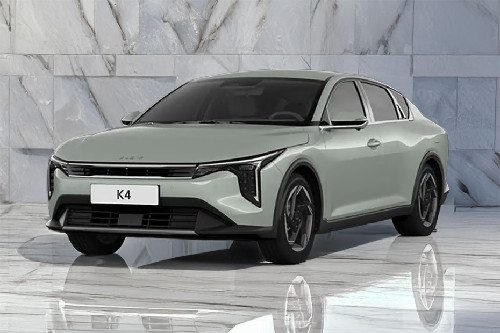
|
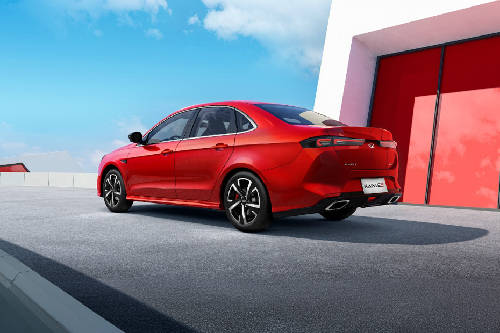
|
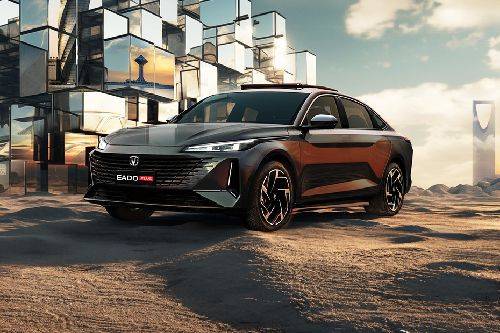
|
|
Transmission Type
Automatic
|
Automatic
|
Automatic
|
Automatic
|
Automatic
|
|
Engine Displacement
1498
|
1498
|
1998
|
1498
|
1498
|
|
Power
116Hp@6000rpm
|
121Hp
|
-
|
156Hp
|
178Hp
|
|
Torque
150Nm@4500rpm
|
152Nm
|
-
|
230Nm
|
300Nm
|
|
|
Trending Sedan
- Latest
- Upcoming
- Popular

